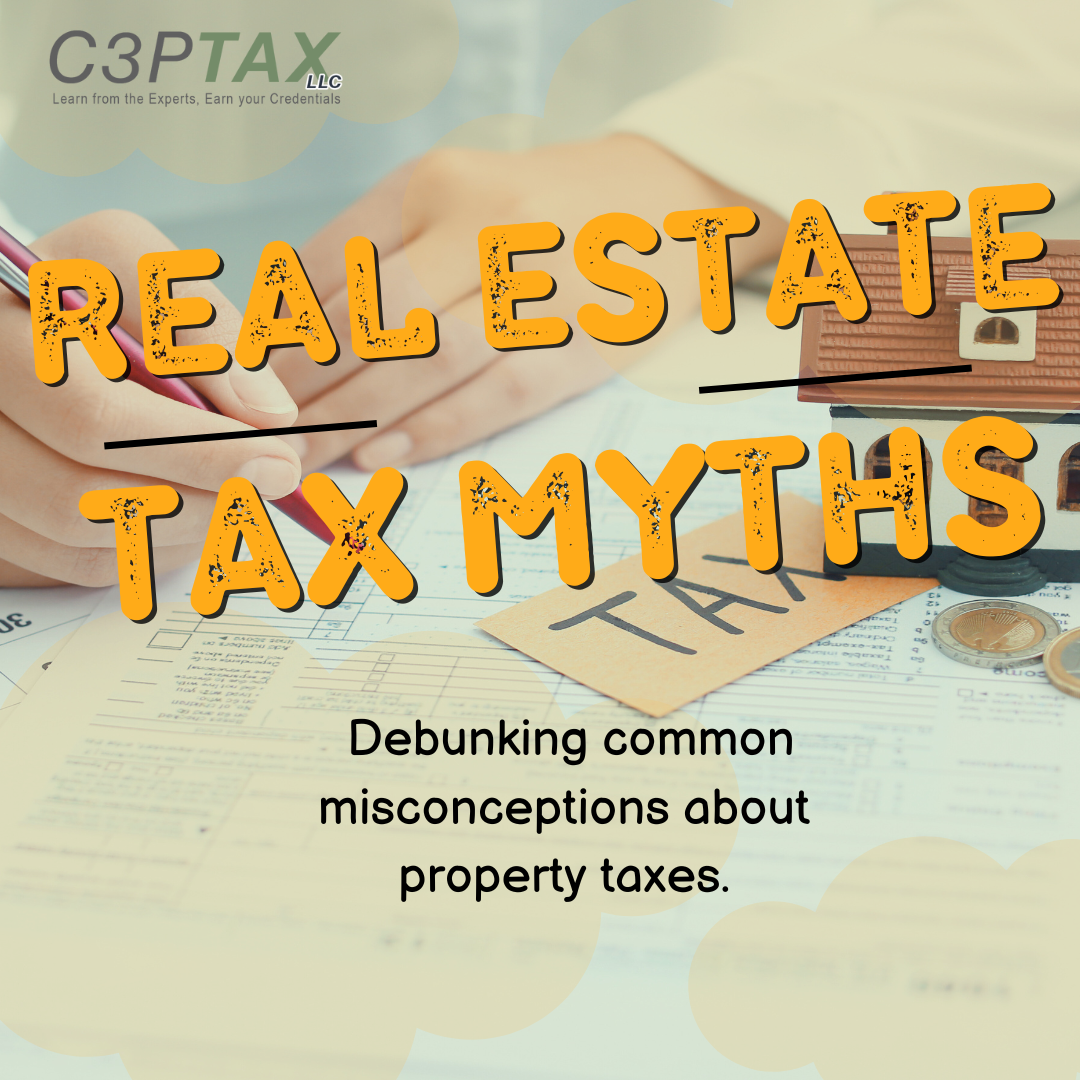

Introduction to Real Estate Tax Planning for Retirement
Real estate tax planning is a pivotal component of ensuring financial stability during retirement. As individuals transition from active employment to retirement, income streams typically become more limited and fixed. This shift necessitates meticulous financial planning to manage various expenses, with property taxes being a significant yet often underestimated burden on retirees’ finances. Unlike other expenses that may decrease with age, property taxes oftentimes continue to rise, potentially imposing a substantial financial strain.
The importance of real estate tax planning for retirement cannot be overstated. Property taxes, which fund essential services and infrastructure, can consume a large portion of a retiree’s fixed income. Without appropriate strategies, retirees might face difficulties in maintaining their standard of living, or worse, risk foreclosure or the necessity to sell their home. Addressing this issue through structured tax planning can provide retirees with the financial predictability and security they need.
In this blog, we will explore various strategies that can help mitigate the financial impact of property taxes on retirees. These strategies will include leveraging exemptions and abatements, considering strategic property relocations, and understanding reassessment practices to potentially lower tax burdens. Additionally, we will discuss how proper timing in selling properties or downsizing can contribute to tax savings. By incorporating these approaches into their financial planning, retirees can better manage their property taxes, thus ensuring a more secure and stress-free retirement.
Understanding Property Taxes: The Basics
Property taxes are a critical component of real estate ownership, directly impacting homeowners and real estate investors alike. These taxes are generally levied by local government authorities to fund public necessities such as schools, infrastructure, and public services. The amount imposed on a property is typically based on its assessed value, which is determined through an official appraisal process conducted by the local tax assessor’s office. This assessed value is then multiplied by the local tax rate or millage rate to calculate the annual tax obligation.
There are several types of property taxes that owners should be aware of. Residential property taxes apply to homes and dwellings that are used as living spaces. These are the most common type and can vary widely based on the property’s location, size, and amenities. Commercial property taxes, on the other hand, are levied on properties used for business activities, such as office buildings, retail spaces, and industrial sites. Finally, land taxes are imposed on the inherent value of undeveloped land, which can also be subject to various local and state regulations that impact its assessment.
The amount of property tax one has to pay can fluctuate based on local governing policies and market conditions. Some regions update property values annually, while others might reassess properties less frequently. Factors such as local economic conditions, changes in government spending, and alterations in tax laws can all influence property tax rates. Moreover, exemptions and tax relief programs can also modify an individual’s property tax liability, offering potential savings to eligible homeowners, such as seniors or veterans.
Understanding how property taxes are calculated and managed is essential for effective real estate tax planning, particularly for those nearing retirement. By comprehending the basics of property taxes, homeowners can better strategize for their financial future and optimize their tax obligations accordingly.
Assessing Your Current Property Tax Situation
When approaching retirement, it is essential to have a clear understanding of your current property tax situation. Accurately assessing your property value and understanding local tax rates are critical first steps in creating an effective real estate tax planning strategy. Begin with a thorough review of your latest property value assessment, typically provided by your local tax assessor’s office. Ensure that the assessed value reflects the current market value of your property; discrepancies can sometimes occur, and it’s crucial to verify that you’re not being overcharged.
Understanding the tax rates in your area is another vital component. Property tax rates can vary significantly depending on your location, and local tax jurisdictions often have different regulations and schedules for reevaluation. Familiarize yourself with these rates and how they are calculated, which often involves a combination of the assessed property value and the local mill rate. Many municipal websites offer online resources to look up tax rates and provide property tax estimators.
It’s also important to stay informed about any recent changes in tax laws that could affect your property taxes. Legislative updates at the local or state level can lead to modifications in property tax rates, exemptions, or assessment processes. Subscribing to local government newsletters or regularly visiting their websites can help you stay up to date with these changes. Consider joining community forums or attending town hall meetings where such updates are often discussed.
Several tools and resources can assist in maintaining an informed stance on your property taxes. Websites dedicated to property tax information, real estate advisors, and tax planning software are excellent starting points. Real estate professionals and financial planners can offer personalized advice, while detailed guides and calculators available online can provide a broader understanding. By methodically evaluating your property tax situation, you establish a solid foundation for more advanced tax planning strategies that can benefit you in the long term.
Strategies to Reduce Property Taxes
As retirees navigate the complexities of real estate tax planning, it’s crucial to understand the strategies available to lower their property tax burden. One effective approach to reducing property taxes is appealing property tax assessments. Homeowners should regularly review their property’s assessed value to ensure it aligns with the current market value. If discrepancies are found, retirees can file an appeal with their local tax assessor’s office. This process often requires providing evidence such as recent appraisals or comparable property sales in the vicinity. A successful appeal can result in a lowered assessment and subsequently, lower property taxes.
Another key strategy involves leveraging tax exemptions or relief programs designed for seniors. Many states offer homestead exemptions that reduce the taxable value of a retiree’s primary residence. Additionally, some localities provide specific exemptions for individuals over a certain age, those with disabilities, or veterans. Retirees should investigate the eligibility requirements for these exemptions and apply accordingly. For instance, in Florida, the Senior Citizen Exemption program offers significant tax relief to residents over 65 with certain income restrictions.
Property tax deferral programs represent another viable option for seniors looking to manage their tax obligations. These programs allow eligible retirees to delay paying property taxes until their property is sold or inherited. While the deferred amount typically accrues interest, this approach can provide immediate financial relief. States like Oregon and Washington offer property tax deferral programs exclusively for seniors, ensuring that they can maintain homeownership without the pressure of annual property taxes.
These strategies, when implemented effectively, can substantially ease the property tax burden for retirees. For example, in Illinois, the Senior Citizens Assessment Freeze Homestead Exemption has helped countless seniors cap their property valuation for tax purposes, preventing increases despite rising home values. By actively engaging in property tax planning, retirees can better manage their finances and enjoy a more secure retirement.
Considering Downsizing or Relocation
For retirees, downsizing or relocating to areas with more favorable property taxes can be a strategic move. The benefits of such decisions are multifaceted, encompassing reduced living costs, an improved financial outlook, and enhanced lifestyle options. However, evaluating whether downsizing or relocating is suitable requires careful consideration of various factors.
One critical aspect to examine is the current housing market trends. Markets with declining or stagnant property values may offer opportunities to purchase a new, more manageable home at a lower price. On the other hand, retirees in appreciating markets may benefit from selling their high-value homes and reinvesting in more affordable properties. For instance, a couple in California sold their large, expensive home and moved to Oregon, a state with significantly lower property taxes and overall living costs. The financial benefit from this move was immediate and long-lasting.
Comparing the cost of living in potential new locations is another vital factor. Beyond property taxes, the general cost of living, which includes utilities, groceries, healthcare, and transportation, can vary widely between regions. Relocating to an area with a substantially lower cost of living can ensure that your retirement savings stretch further. For example, relocating from an urban center to a suburban or rural area often results in lower expenses across the board.
Additionally, it’s crucial to consider how such a move might impact your overall retirement plans. This includes accessibility to healthcare facilities, proximity to family and friends, and lifestyle preferences. A thorough evaluation will ensure that the benefits of downsizing or relocating align with your long-term goals.
Incorporating real-life examples illustrates the tangible impacts of these decisions. For example, a retiree who moved from New York City to Florida not only reduced her property tax burden but also found a community with a lower cost of living and a climate that suited her lifestyle. These benefits collectively contributed to a more comfortable and financially secure retirement.
Inheritance and Estate Planning Considerations
Real estate inheritance and estate planning carry significant implications for future property taxes. When property is transferred to heirs, it can create considerable tax liabilities if not properly structured. Ensuring that your property is transferred in a tax-efficient manner can help manage these potential burdens.
One key consideration is the basis of the property. When an heir inherits real estate, the property’s cost basis is generally stepped up to its market value at the time of the original owner’s death. This adjustment can substantially reduce the capital gains tax that the heir would owe upon selling the property. However, if the property is gifted during the original owner’s lifetime, the heir assumes the original basis, which could result in significant capital gains tax liabilities if the property has appreciated in value.
Trusts offer an effective solution for estate planning and property transfer. By placing property into a trust, you can establish clear directives on how and when your real estate should be distributed to your heirs. Trusts can also provide significant tax benefits and help avoid probate, which can be both time-consuming and costly. For instance, a revocable living trust allows the property owner to retain control over the real estate during their lifetime while ensuring a smooth transfer to heirs upon their death. An irrevocable trust, although less flexible, can offer greater tax advantages as the property is no longer considered part of the owner’s estate for tax purposes.
Another strategy involves the use of family limited partnerships (FLPs). Through an FLP, property can be transferred to family members while maintaining managerial control within the original owner’s hands. This arrangement could potentially reduce estate taxes and provide a mechanism for gradual gifting, which might further mitigate tax burdens.
It is essential to consult with a tax advisor or estate planner to devise a tailored strategy that aligns with your specific financial situation. Utilizing these estate planning tools effectively can help ensure that your real estate assets are managed with minimal tax liability, benefiting your heirs in the long run.
Building a Tax-Efficient Real Estate Portfolio
Creating a tax-efficient real estate portfolio is a crucial aspect of managing property taxes both in the present and for future retirement. Incorporating tax strategies into your real estate investment plan can significantly impact your financial outcomes. One key strategy is diversification, which not only mitigates risk but also offers tax benefits. By spreading investments across various property types and geographical locations, you can balance out taxable gains and losses, optimizing your overall tax liability.
Investing in tax-advantaged properties is another effective approach to building a tax-efficient portfolio. Properties in certain locations or those that qualify for specific government incentives can provide substantial tax breaks, such as deductions for depreciation or credits for eco-friendly improvements. Additionally, exploring opportunities in Opportunity Zones or properties eligible for historic preservation tax credits can further reduce your tax burden.
Real Estate Investment Trusts (REITs) offer an alternative method to manage tax exposure. REITs allow investors to purchase shares in a portfolio of real estate assets, which distributes at least 90% of its taxable income as dividends. Investing in REITs can deliver regular income while providing favorable tax treatment, particularly if the REITs held in tax-advantaged accounts, such as IRAs or 401(k)s, deferring taxes until retirement withdrawals.
The importance of ongoing portfolio review cannot be overstated. Tax laws and regulations are subject to change, and what is tax-efficient today may not be favorable tomorrow. Regularly reassessing your real estate holdings and staying informed about current tax legislation ensures that you adjust your strategies accordingly. This proactive approach helps maintain a tax-efficient portfolio, aligning with your long-term financial and retirement goals.
By implementing these strategies—diversification, investment in tax-advantaged properties, and incorporating REITs—investors can build a tax-efficient real estate portfolio that supports sustained growth and minimizes tax liabilities, thereby securing a more stable financial future for retirement.
Working with Tax and Financial Advisors
When navigating the complexities of real estate tax planning for retirement, the expertise of tax professionals and financial advisors is invaluable. These seasoned experts can help craft strategies tailored to your personal financial situation, maximizing tax benefits and minimizing liabilities. Consulting with professionals ensures a more accurate and comprehensive approach to managing property taxes, which is crucial during retirement when income often becomes fixed or limited.
Firstly, finding qualified experts requires diligent research. Look for advisors who specialize in retirement planning and have a strong background in tax regulations applicable to real estate. Certifying bodies such as the National Association of Personal Financial Advisors (NAPFA) and the Certified Financial Planner Board of Standards (CFP Board) can be great resources for identifying credible professionals. Additionally, seeking referrals from friends or family who have had similar needs can lead to finding someone reliable and trusted.
When interviewing potential advisors, ask pertinent questions to gauge their competency and how well they understand your specific needs. Inquire about their experience with real estate tax planning, their knowledge of current tax laws, and any strategies they have successfully implemented for other clients. Questions such as, “What are the potential tax benefits of downsizing my home?” or “How can I leverage tax deductions related to property expenditures?” will provide insight into their practical expertise.
Working collaboratively with your tax professional and financial advisor is vital to creating a robust tax strategy. Schedule regular meetings to review your financial plan, discuss any changes in tax laws, and adjust your strategy accordingly. Effective communication is key; ensure all your advisors are aware of each other’s recommendations and are working cohesively toward your financial goals.
Successful retiree-advisor collaborations often involve a blend of personalized advice and proactive planning. For instance, one retiree worked closely with her financial advisor to strategically downsize her property, optimizing her asset allocation while significantly reducing her property tax burden. Another retiree partnered with a tax professional to navigate the complexities of rental income from investment properties, ensuring compliance and enhancing profitability.
Engaging with knowledgeable tax and financial advisors can profoundly impact your retirement’s financial health, providing peace of mind and securing your long-term economic stability. Such collaborations transform the daunting task of managing property taxes into a more manageable, strategic endeavor.
 Français
Français 















